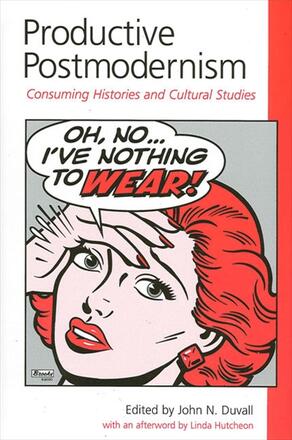
Productive Postmodernism
Consuming Histories and Cultural Studies
Alternative formats available from:
Investigates a broad range of contemporary fiction, film, and architecture to address the role of history in postmodern cultural productions.
Description
Productive Postmodernism addresses the differing accounts of postmodernism found in the work of Fredric Jameson and Linda Hutcheon, a debate that centers around the two theorists' senses of pastiche and parody. For Jameson, postmodern texts are ahistorical, playing with pastiched images and aesthetic forms, and are therefore unable to provide a critical purchase on culture and capital. For Hutcheon, postmodern fiction and architecture remain political, opening spaces for social critique through a parody that deconstructs official history. Thinking in the space between these two sharply different positions, the essays in this collection investigate a broad range of contemporary fiction, film, and architecture—from such narratives as Don DeLillo's Libra, Toni Morrison's Beloved, and Ridley Scott's Blade Runner, to the vastly different spaces of Las Vegas casinos and the United States Holocaust Memorial Museum—in order to ask what the cultural work of a postmodern aesthetic might be.
John N. Duvall is Associate Professor of English at Purdue University and the author of The Identifying Fictions of Toni Morrison: Modernist Authenticity and Postmodern Blackness and Faulkner's Marginal Couple: Invisible, Outlaw, and Unspeakable Communities.
Reviews
"Although there are many books on postmodernism, I don't know of any that theorize Jameson and Hutcheon this way or that bring history-fiction-architecture together so provocatively. I like the way these essays, all of them, put theory into practice. " — Dawne McCance, author of Posts: Re Addressing the Ethical
"The text articulates well the shift from postmodernism as a de(con)structive fragmenting theory/act (as it is so often in both popular and academic contexts) to a productive fragmenting theory/act. The book contributes to the field of postmodern theory as well as to the literary, architectural, historical, and aesthetic fields tapped into through the individual essays. " — Beth Martin Birky, Goshen College